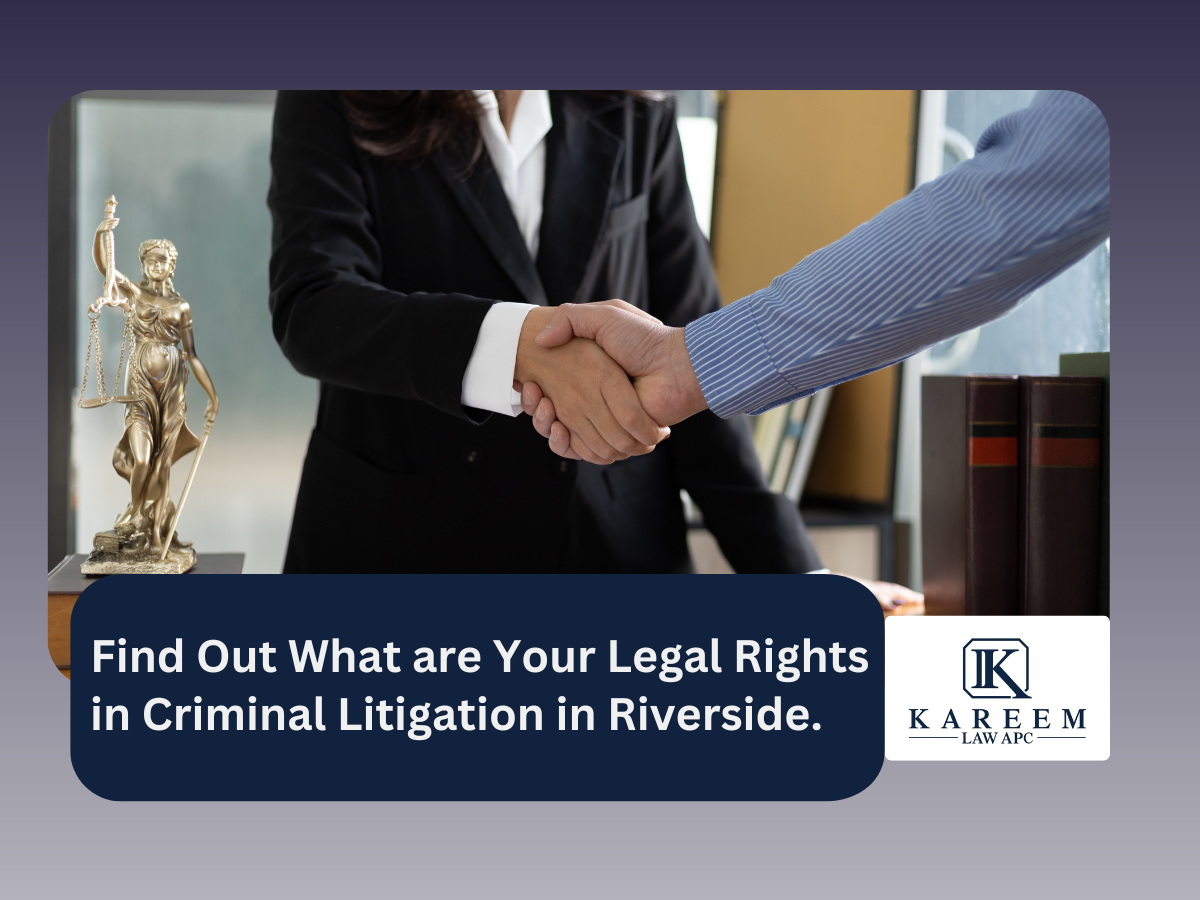If you’ve been arrested for a crime, it’s important to reach out to a criminal defense attorney, even if the charges seem minor. A misdemeanor could still have a significant impact on your life. A criminal defense lawyer in Riverside will take various steps at the beginning of a case, such as negotiating with the prosecutor to have the charges dropped or reduced.
In this article, we will delve into the legal rights needed in criminal litigation in Riverside.
5 Important Legal Rights in Criminal Litigation in Riverside
Every citizen and legal resident of this country is guaranteed certain rights and protections under the Constitution. If these rights are compromised at any point in the legal process, from the arrest to the trial, the outcome of a criminal case may be significantly affected, often in favor of the defendant. Here are the 5 important legal rights in criminal litigation in Riverside:
- Right to Legal Counsel
Every person accused of a crime has the legal right to obtain a competent defense attorney. If a defendant cannot afford counsel, the court must provide one for free. A defendant may also choose to act as his or her counsel in court, but this is NEVER recommended.
- Right to Submit Evidence
A defendant has the legal right to submit evidence in court and file a motion to subpoena all witnesses and evidence that could significantly impact the case outcome in their favor, at no cost.
- Right to Jury Trial
All defendants have the right to a speedy, fair, and public trial. Additionally, every person accused of committing a crime is presumed innocent until proven guilty beyond a reasonable doubt by a panel of impartial jurors.
- Right to Submit Evidence
A defendant has the legal right to submit evidence in court and file a motion to subpoena all witnesses and evidence that could significantly alter the outcome of the case in their favor, at no cost.
- Right Against Self-Incrimination
All individuals accused of a crime have the legal right to remain silent to avoid self-incrimination, and they also have the option to testify in court. The legal principle of self-incrimination states that a person cannot be forced to provide information or testify against themselves in a criminal litigation.
What is the Role of a Riverside Criminal Lawyer in Criminal Litigation?
The primary role of a Riverside Criminal Lawyer in criminal litigation is to defend individuals or organizations facing criminal charges. They represent their clients in court, negotiate plea deals, provide legal advice, and ensure that their clients’ rights are protected throughout the legal process. Riverside Criminal defense lawyers have a deep understanding of criminal laws, legal procedures, and the criminal justice system, making them invaluable resources for those facing criminal charges. A Riverside Criminal lawyer will help you resolve your current situation by applying their years of experience.
Every state has statutes of limitations, which are time limits on how long employees have to file claims against their employers for compensation. These time limits can be short, so it’s important that you promptly consult with an attorney. If you’ve been the victim of employment discrimination, had your family and medical leave rights violated, been paid unfairly, or been retaliated against, you must speak to an attorney. No matter what type of criminal litigation you are accused of, a specialized lawyer who can provide expert legal advice. A skilled Riverside criminal lawyer is working towards an outcome that is advantageous for you.
Wrapping Up
It is essential to understand the five essential legal rights in criminal litigation in Riverside. If you or someone you love is facing a criminal defense lawsuit, do not jeopardize your rights and freedom. At Kareem Law APC, we have a team of the best criminal defense attorneys who will work hard to assist you in obtaining a favorable outcome. Please get in touch with us at (888) 506-6519 today to consult with one of our skilled criminal defense attorneys, who will ensure your rights and interests are protected throughout the entire legal process.









